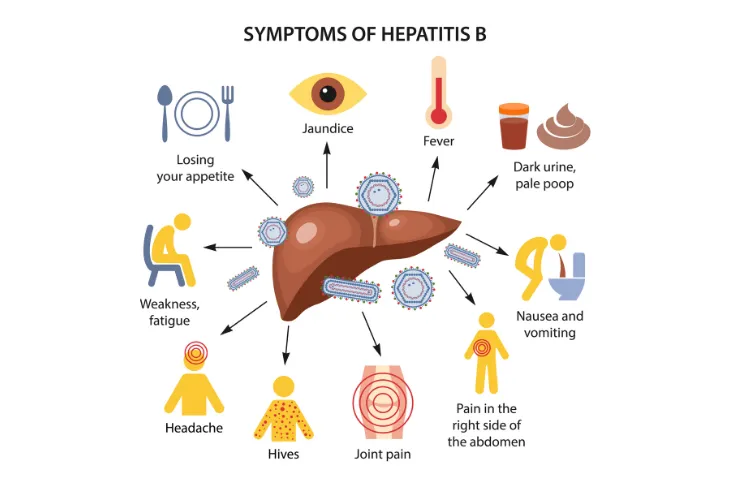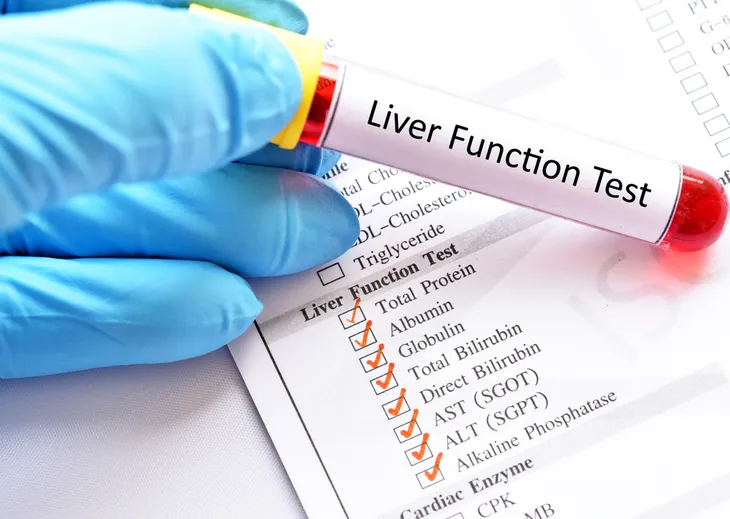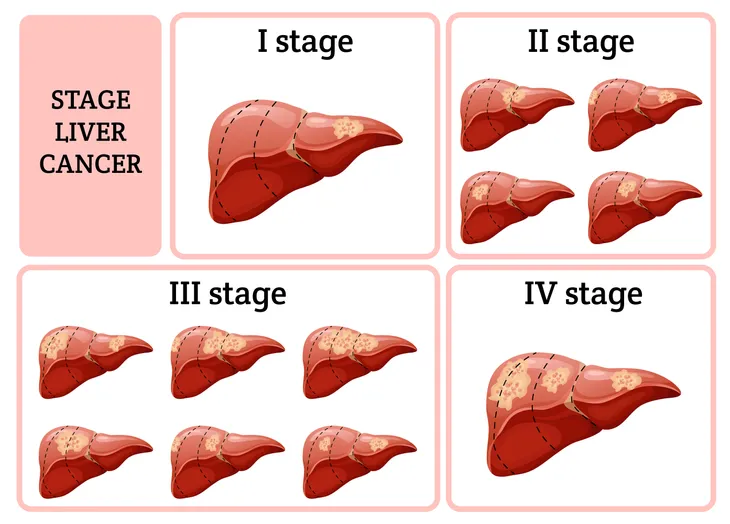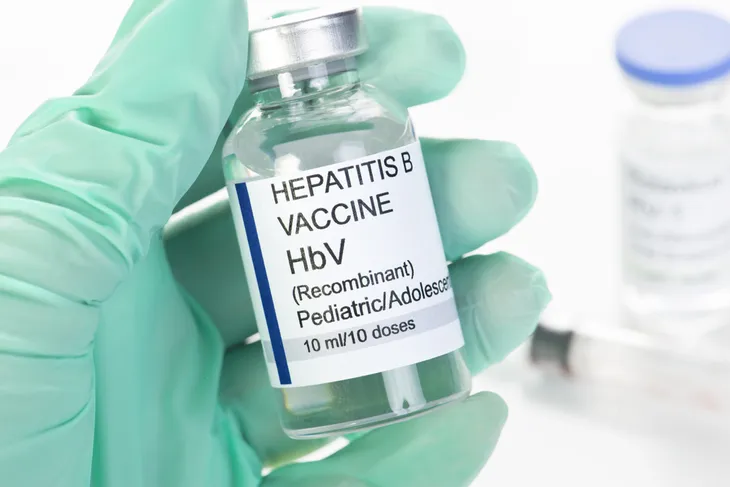Hepatitis B is an infection of the liver and is caused by the hepatitis B virus (HBV). Some cases can be acute and resolve without treatment but unlike hepatitis A, hepatitis B can be chronic. In some cases, it can even lead to life-threatening health issues such as liver cancer or cirrhosis.
The best way to resolve the infection is to first recognize the symptoms and then get a proper diagnosis. The hepatitis B vaccine is also the best way to stay protected. In an effort to better understand this infection, here is everything you need to know about hepatitis B, including the common symptoms and causes, diagnosis steps, and treatment options.
What Is Hepatitis B
Healthline explains, “Hepatitis B is a liver infection caused by the hepatitis B virus (HBV).” HBV is only one of the forms of viral hepatitis. In total there are five, including hepatitis A, C, D, and E, with B and C being the most likely to become chronic.
In fact, the Hepatitis B Foundation says 2.4 million people in the U.S are living with chronic hepatitis B. Unfortunately, only 25-percent of infected individuals are diagnosed. It also causes thousands of fatalities each year.
Common Symptoms of Hepatitis B
First, it’s worth noting, it may take a few months for symptoms to develop. Common symptoms of a hepatitis B infection include fatigue and weakness, joint and muscle pain, abdominal pain, loss of appetite, fever, dark urine, and yellowing of the skin and whites of the eyes (known as jaundice).
Symptoms of hepatitis B require immediate medical attention. Symptoms can be even worse in older individuals (over 60-years old). Finally, contact your doctor right away if you think you’ve been exposed to hepatitis B. Early intervention may prevent infection!
Is It Contagious?
Yes, hepatitis B is highly contagious. Symptoms may not develop for 3-months after exposure but once the individual starts showing symptoms, they can last for 2 to 12-weeks.
Keep in mind, you are still contagious even when you aren’t showing symptoms, says Healthline. Another thing to note, the virus can also live outside the body for up to 7-days!
What Causes Hepatitis B?
We already know hepatitis B is caused by the hepatitis B virus, but what causes the virus to spread in the first place? If an individual comes into contact with infected blood or certain bodily fluids, they can get infected. While it can be found in saliva, it isn’t spread through, coughing, sneezing, or breastfeeding.
Some possible causes of transmission include direct contact with infected blood, transfer from mother to baby during birth, intimate contact, or being pricked by a contaminated needle.
How Is Hepatitis B Diagnosed?
First, your doctor will likely ask about your medical history as well as find out if you’ve come into contact with someone with hepatitis B. They’ll also ask if you’ve recently traveled to a country where it’s common, use IV drugs, receive kidney dialysis, are pregnant, or have HIV.
But to diagnose hepatitis B, your doctor will typically perform blood tests to confirm a diagnosis. Let’s take a look at these in more detail next.
Diagnosis: Antigen Tests
The first test your doctor may recommend is a hepatitis B core antigen test. This test determines whether you’re currently infected with HBV. A positive result typically means you have acute or chronic hepatitis B.
They may also recommend hepatitis B surface antigen tests which determine if you’re contagious. If the results are positive this confirms you have the virus and can spread it to others.
Diagnosis: Liver Function Test
If you have liver disease or think you might have hepatitis B, a liver function test will help determine how well your liver is functioning. The test checks your blood for the number of enzymes made by your liver, explains Healthline. If the levels are high this means you have a damaged or inflamed liver.
If your results come back positive, your doctor may require additional testing to diagnose hepatitis B, C, as well as other liver infections. Finally, you may also require imaging tests such as an ultrasound.
How to Prevent Infection
The best way to prevent infection is to ensure you are up to date on your vaccines. A hepatitis B vaccine can help protect you from infection.
Healthline also says early intervention is also essential in preventing infection. If you suspect you’ve been exposed to hepatitis B within the last 24-hours, contact your doctor right away. Receiving the vaccine as well as an injection of HBV immune globulin may help prevent the infection.
Hepatitis B Treatment
Luckily those with acute hepatitis B likely won’t need treatment. Many individuals can recover from an acute infection on their own, although Healthline says hydration and lots of rest can help your recovery.
In contrast, those with chronic hepatitis B may require antiviral medications to help fight the virus. Medication may also reduce your risk of liver complications in the future. Finally, if the infection has severely damaged your liver, you may require a liver transplant.
Complications
Unfortunately, many individuals with chronic hepatitis B don’t feel sick unless it’s in its late stages. Some don’t even know they have it! In some cases, chronic hepatitis B can lead to serious complications such as cirrhosis, which makes it harder for the liver to do its job.
Other complications include liver cancer and liver failure. If you have chronic hepatitis B, your doctor may request an ultrasound to find out if you’re showing any signs of cancer. Liver failure occurs when the liver is no longer able to do its job and it can happen in severe cases of chronic hepatitis B, says WebMD.
Hepatitis B and Pregnancy
Another complication to be wary of is how hepatitis B affects pregnancy. Pregnant mothers can pass the infection to their baby during birth, but not during pregnancy.
If this does happen, it’s vital that your infant gets the proper treatment because if left untreated, your child could have long-term liver problems, reports WebMD. The source also says “all newborns with infected mothers should get hepatitis B immune globulin and the vaccine for hepatitis at birth and during their first year of life.”
The Importance of the Hepatitis B Vaccine
The best way to prevent infection is to get the hepatitis B vaccine. Healthline says it takes three vaccines to complete the series.
Just about everyone should receive the vaccine including all infants at birth or any child/adult who wasn’t vaccinated at birth, people who come into contact with blood during work, people with chronic diseases, and more. Not only is the vaccine safe, but it’s relatively inexpensive to get as well.















